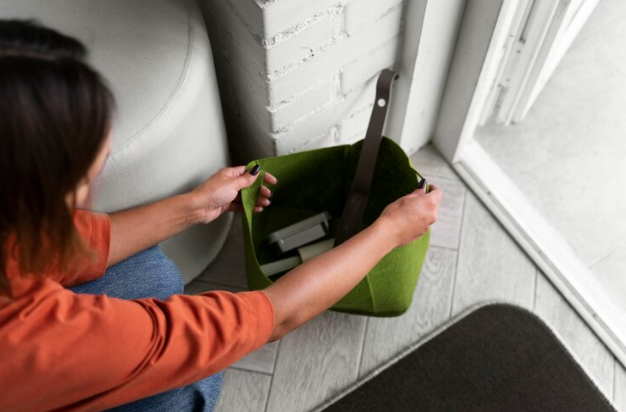Water damage can strike unexpectedly and wreak havoc on your home. From soaked carpets to mould growth and structural issues, water damage is a homeowner’s nightmare. But by understanding the common causes of water damage and how to prevent them, you can safeguard your property and avoid expensive repairs. In this article, we will explore the main culprits behind water damage and provide practical tips to prevent it.
Understanding the Common Causes of Water Damage
1. Plumbing Issues
Plumbing problems are one of the leading causes of water damage in homes. Leaking pipes, clogged drains, or burst hoses can cause significant water damage if not addressed promptly. Even a small drip can lead to major issues over time, such as warped floors, damp walls, and mould.
Prevention Tip: Regularly inspect your plumbing system for signs of wear or damage. Fix leaks immediately, and consider installing water sensors near key appliances like dishwashers and washing machines to detect leaks early.
2. Roof Leaks
Your roof is your home’s first line of defence against the elements. However, over time, shingles can wear out, and seals can weaken, leading to roof leaks. Rainwater can seep through these leaks, damaging your ceilings, walls, and insulation.
Prevention Tip: Conduct regular roof inspections, especially after heavy storms. Replace damaged shingles and fix any leaks as soon as possible to prevent water damage from worsening.
3. Clogged Gutters
Clogged gutters can cause water to overflow and pool around your home’s foundation, leading to water damage. When gutters and downspouts are blocked with leaves, dirt, and debris, they can’t properly channel rainwater away from your house.
Prevention Tip: Clean your gutters regularly, especially in the fall when leaves tend to accumulate. Consider installing gutter guards to keep debris out and ensure that water flows freely away from your home’s foundation.
4. Faulty Appliances
Appliances like dishwashers, washing machines, and water heaters can malfunction and cause water damage. Over time, hoses can wear out or burst, and seals can degrade, leading to leaks.
Prevention Tip: Regularly check the hoses and seals on your appliances for signs of wear. Replace them as needed to prevent leaks. Also, consider placing a water leak detector near your appliances to alert you to any issues early.
5. HVAC Issues
Heating, ventilation, and air conditioning (HVAC) systems, particularly air conditioners, can cause water damage if not maintained properly. Condensation can build up in the system, leading to water leaks that can damage floors, walls, and ceilings.
Prevention Tip: Schedule regular maintenance for your HVAC system, and ensure that condensation drains are clear and functioning properly. Change air filters regularly to avoid blockages that can cause excess moisture to build up.
6. Foundation Cracks
Cracks in your home’s foundation can allow water to seep into your basement or crawl space. This can cause flooding, mould growth, and structural damage if not addressed promptly. Foundation cracks can result from poor drainage, soil movement, or the natural settling of the home over time.
Prevention Tip: Inspect your foundation for cracks regularly, and seal any gaps you find. Ensure that the soil around your home is graded properly to direct water away from the foundation. Installing a sump pump in your basement can also help prevent flooding in case of heavy rain.
How to Prevent Water Damage in Your Home
Now that we’ve covered the common causes of water damage, let’s discuss practical steps you can take to prevent it.
Regular Inspections and Maintenance
Perform regular inspections of your plumbing, roof, and appliances. Identifying and fixing small issues before they turn into major problems is key to preventing water damage. Don’t wait until you leak to check your pipes—schedule routine maintenance and inspections.
Install Water Detection Devices
Water leak detectors are a cost-effective way to catch leaks early before they cause significant damage. These devices can be installed near plumbing fixtures, appliances, and basements to alert you to leaks.
Improve Drainage Around Your Home
Proper drainage is essential to prevent water from pooling around your home’s foundation. Ensure that your yard is graded to direct water away from the house. Installing downspout extensions and ensuring that gutters are clean and functional can also prevent water from seeping into your home.
Act Fast When You Spot Water Damage
If you notice signs of water damage, such as damp walls, discoloured ceilings, or mould, don’t wait to take action. Call a Water Damage Restoration Company in GA immediately to assess the situation and begin repairs. The faster you address water damage, the less severe it will be.
FAQs
1. How can I tell if my home is at risk of water damage?
There are a few signs to look out for, including leaks, damp spots on walls or ceilings, strange smells (which could indicate mould), and unusual increases in your water bill. Regular inspections are the best way to catch problems early.
2. What should I do if I discover water damage?
The first step is to stop the source of the water (turn off the water supply if necessary) and call a Water Damage Restoration Company in GA to assess the extent of the damage. Immediate action can prevent further harm, such as mould growth or structural issues.
Conclusion
Water damage can be devastating, but with a little foresight, you can take steps to prevent it. By regularly inspecting your home, maintaining your appliances, and acting quickly when issues arise, you can protect your property from the most common causes of water damage. If you experience water damage, don’t hesitate to contact a water damage restoration company in Georgia to help restore your home to its original condition.
